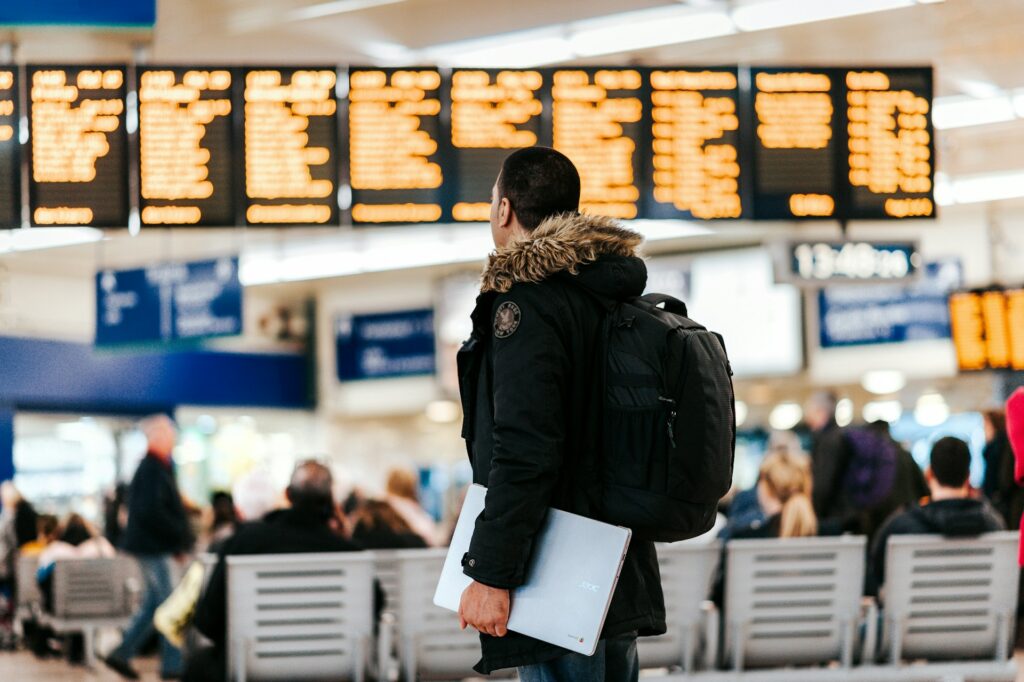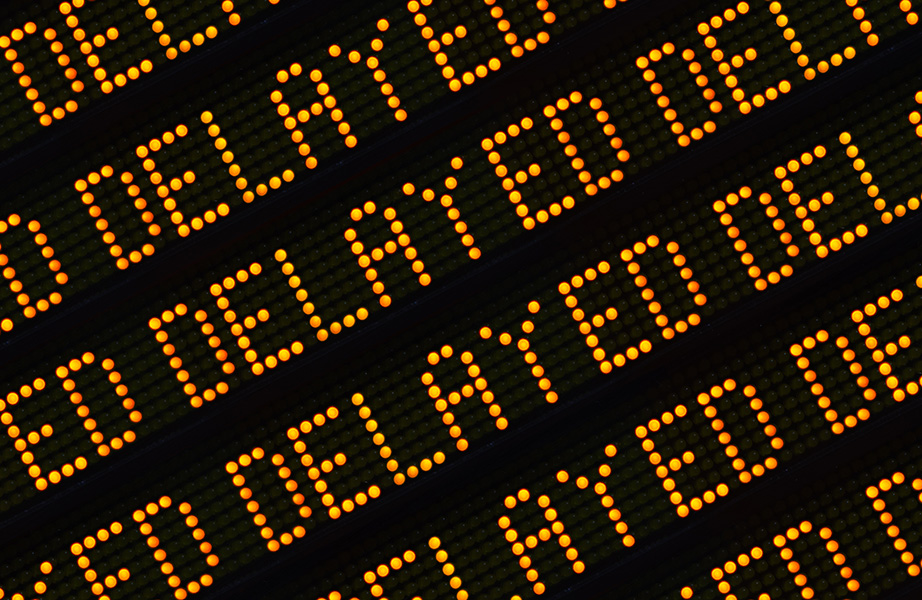Flight delays are an inconvenience that can disrupt travel plans and schedules. Delays can occur for a plethora of reasons including, but not limited to, adverse weather conditions, technical issues with the aircraft, air traffic congestion, and sometimes even strikes or staffing problems. Awareness of these common culprits can help set realistic expectations and inform better planning.
Being prepared for potential delays can alleviate some of the stress associated with disrupted travel plans. Planning ahead, such as having travel insurance, knowing your rights, and packing essentials in your carry-on luggage, can make a significant difference in how a delay affects you. By understanding the common reasons for flight delays and knowing how to handle them, you can navigate disruptions with confidence.
Key Takeaways
- Flight delays can be caused by a variety of factors including weather, technical issues, and air traffic.
- Travellers are entitled to certain compensations and rights in the event of a significant delay.
- Preparation and knowledge of what to do during a delay can greatly reduce the associated stress.
Common Causes of Flight Delays

Your flight can be delayed for various reasons, each playing a part in disrupting travel plans. Understanding these common causes can help you prepare and adjust your expectations.
Air Traffic Control Issues
Air Traffic Control (ATC) is responsible for managing the flow of aircraft in the sky and on the ground. When they face issues, such as overcrowding in the airspace or system failures, your flight may be delayed as they work to ensure safety.
Adverse Weather Conditions
Inclement weather is one of the leading causes of flight delays. Conditions such as fog, heavy rain, snow, and thunderstorms can significantly affect visibility and the ability to take off or land safely.
Technical Aircraft Problems
Aircraft undergo rigorous checks. Sometimes, technical issues that need immediate attention arise, leading to a delay. These problems can range from minor system malfunctions to critical engine repairs.
Operational Airline Disruptions
Operational disruptions within an airline, including overbooking, staffing shortages, or employee strikes, can all lead to delays. Airlines endeavour to resolve these issues promptly to minimise your wait time.
Airport Operational Issues
Challenges at the airport itself, such as runway maintenance, baggage system faults, or terminal power outages, can cause unexpected delays in your travel schedule.
Extraordinary Circumstances
Events that are beyond the control of the airline or airport, like natural disasters or political instability, can also lead to significant disruptions in flight schedules. These are considered extraordinary because of their rarity and unpredictability.
Legal Rights and Compensation
When your flight is delayed, you may be entitled to compensation or refunds under certain conditions. Understanding your legal rights in the region of your travel is crucial to effectively claim what you’re due.
Understanding EU Regulations
Under EU Regulation 261/2004, if you are flying from an EU airport or with an EU-based airline to an EU country, you are afforded certain protections. In case of significant delays (typically over 3 hours), you may be entitled to compensation ranging from €250 to €600 depending on your flight distance. It is important to file a claim with the airline, as this compensation is not automatic.
Exceptions Apply:
- Extraordinary circumstances (e.g., extreme weather)
- Notice given over two weeks before scheduled flight time
Claiming Compensation in the US
In the United States, the Department of Transportation (DOT) does not guarantee compensation for delayed flights. However, if you are involuntarily bumped due to overbooking, you may be entitled to compensation in the form of a check or cash. The amount depends on the price of your ticket and the length of your delay:
- Short Delay (1-2 hours after original arrival time): 200% of one-way fare (capped at $775)
- Long Delay (Over 2 hours after original arrival time): 400% of one-way fare (capped at $1,550)
UK Law and Entitlements
Post-Brexit, the UK has retained the EU Regulation 261/2004 for flight delays and cancellations with similar compensation thresholds. It is enforced by the Civil Aviation Authority (CAA). If your flight is heavily delayed, contact the airline for compensation or a refund.
Steps to Take:
- Contact the airline directly to claim compensation
- Keep records of your communications
- Approach the CAA if the airline fails to respond satisfactorily
Compensation for Package Holiday Delays
If your flight was part of a package holiday, you’re protected by the Package Travel and Linked Travel Arrangements Regulations 2018. In cases of significant delays, the tour operator is responsible for providing assistance and, where applicable, compensation. It’s essential to reach out to your travel organiser to understand your specific entitlements, which may vary based on the terms of your package holiday.
Steps to Handle a Delayed Flight

In the event of a flight delay, it’s essential to be proactive in managing the situation. The following steps will guide you through gathering necessary documentation, communicating effectively with the airline, and understanding your entitlements for refunds or vouchers.
Gathering Documentation
It is important to collect all relevant documentation concerning your flight delay. Ensure you have:
- Boarding pass: Your boarding pass is proof of your intent to travel.
- Delay notice: Save any communication from the airline detailing the delay.
- Receipts: Keep all receipts for additional expenses incurred, such as food and drink or accommodation.
Communicating with the Airline
Once you have all your documents in order, communicate with the airline. This includes:
- Notice: Inform the airline of any important commitments you may miss due to the delay.
- Enquiries: Ask about the specific circumstances of the delay and expected resolution time.
- Assistance: Request information on available support like food, drink, or accommodation.
Requesting Refunds and Vouchers
When flights are significantly delayed, you may be entitled to claim compensation or request refunds. To do so:
- Claim compensation: Determine if you are eligible for compensation under airline policies or passenger rights regulations.
- Refund: If you decide not to travel, inquire about the process for obtaining a refund.
- Vouchers: If applicable, ask the airline about vouchers for future travel or services as compensation.
Preparing for Potential Delays
When travelling by air, disruptions are an inevitable possibility. Being well-prepared can significantly ease the stress of dealing with a delayed flight.
Conducting Pre-Flight Research
Before you head to the airport, take some time to research your specific flight and carrier. Look for any patterns of delays particularly with your scheduled flight. This can often be done by checking the historical performance of the flight using tracking websites or apps. Keep an eye on the weather forecasts and airport conditions as they can be key predictors of potential flight disruption.
Understanding Compensation Policies
In the event of a delay, it is crucial to be aware of your rights for compensation. Different airlines have varying policies, and certain jurisdictions may entitle you to compensation if your flight’s delay meets specific criteria. Familiarise yourself with your airline’s compensation policy and understand the process to lodge a claim, should the need arise.
- EU Flight Compensation: If you’re flying within the EU or with an EU-based carrier, and your flight is delayed over three hours, you could be eligible for compensation under EU law EC 261.
- Non-EU Flight Compensation: Compensation laws vary outside of the EU and are dependent on the airline’s policy and the local laws.
Knowing Your Employer’s Travel Policies
If you are travelling for work, ensure you know your employer’s policies regarding travel disruptions. Some employers may have specific protocol you must follow or provide resources such as emergency contacts or a travel helpline.
- Reporting Delays: Inform your employer of the delay as soon as possible.
- Documentation: Keep all receipts and documentation that may be required for company expense claims.
In grasping these three critical areas of preparation, you can navigate flight delays with composure and knowledge, minimising the impact on your journey and well-being.








